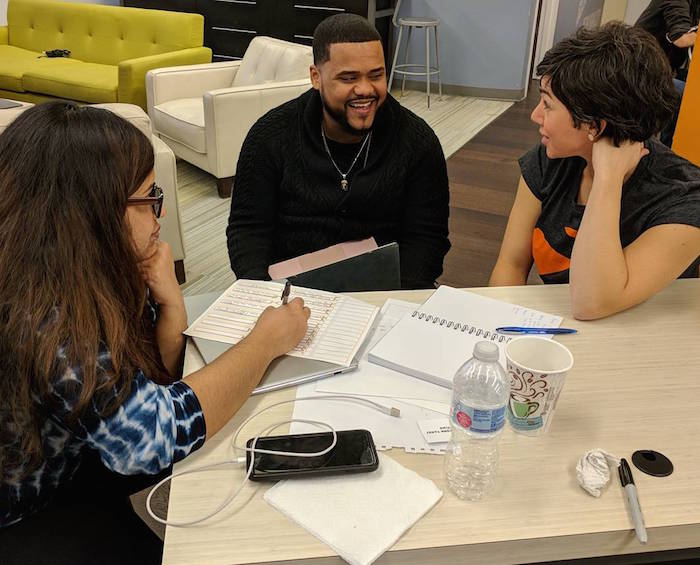Katherine Olives

Innovation lives everywhere. The brightest ideas in solving problems in our society can come from every corner and every community, and we would be crazy to ignore the contributions of the immigrants, women, ethnic and religious minorities, and any other way you want to define diversity.
Raj Chetty and his team at Stanford have again published important work on the study of inequality in our society, and their most recent research on Lost Einsteins particularly rings true for us at the Zahn Center at The City College of New York. The research concludes that innovators must be exposed to inventions and entrepreneurs from a young age. It's this mere exposure that delineates those in our society who will become our next Steve Jobs, and those who will never even dream to contribute in this way. And like I said, we are crazy to let that happen.
We all know that the problems in our society are vast and complex, and affect each of our communities in different ways. But if only a small fraction of our population is working towards the development of new technology that will actually solve some of these challenges, there's no possibility of creating technology that benefits all of society and creating greater equity and sustainability for everyone.
At the Zahn Center we argue that many of the brightest minds who can solve pressing problems are under-supported. We also argue that the challenges that are most important in those under-resourced communities are overlooked by the mainstream tech and entrepreneurship sectors today. It is our great responsibility to train this next generation of entrepreneurs to both identify problems that matter to them, and develop the solutions.
One of our recent graduates is a company named Veripad. This team of immigrants whose families come from Egypt, Korea and Vietnam experienced the tribulations of unreliable medication when visiting family abroad. As a result they are developing new technology to verify each pill, in such a way that a simple pad and a smartphone can tell you instantly whether the medication you are giving your child will cure his malaria.
Another company that got its start at the Zahn Center is Strong Arm Technologies. This team from Upstate New York witnessed their family members being hurt or worse as they labored in construction, virtually unprotected. The team of engineers built armor for the industrial athletes who rely on their bodies strength every day to earn their living.
These are not problems that most traditional entrepreneurs experience, and yet they are challenges that affect millions of people in our society. We at the Zahn Center are so lucky to work with the innovative entrepreneurs that are solving challenges that matter to all members of our society. And it is our shared responsibility to work to find and nurture the Lost Einsteins so that we all move forward together and apply technological advancements in a way that positively impacts all parts of society.
We'll explore Raj Chetty's research on “Lost Einsteins” on a panel at our upcoming Zahn Innovation Summit, and you'll learn why investors seek out founders from every corner.